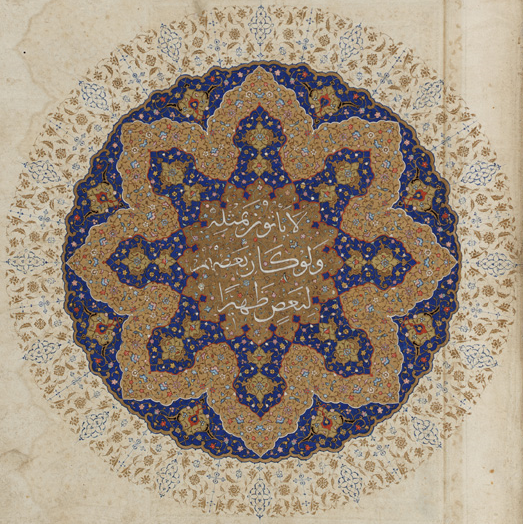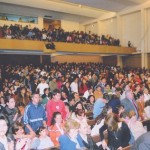This is an installment of the Religious Fundamentalism and Sexuality Project. You can read the full list of questions here and the posting plan here. The first six participants whose stories I’ll be posting are Melissa and Haley, Lina and V, Latebloomer and Katy-Anne.
Sex Education and the Body
3. What kind of sex education did you receive, if any? How did your parents/church talk about sex and sex education? How did your parents model their beliefs about sexuality?
4. How was your approach to the Bible shaped by beliefs about sexuality, and vice versa? (Did you, for instance, read Song of Solomon?) What Bible verses were most important to your understanding of sexuality?
5. What books or other materials did your parents and/or church use to teach you about sexuality? Were you given books about marriage and courtship, for instance?
Melissa and Haley
Melissa:
My mom gave me a basic parts talk and explained that a seed from the man meets up with an egg inside the woman and that a baby grows. And that sex was something very special and sacred that you could only do when you were married and loved each other very much. I did not understand what exactly sex was, and I assumed that the seed/egg thing happened when you were married and slept in the same bed, perhaps while you were sleeping. Eventually I started to suspect there was more too it, because there was so much emphasis on not having sex, and the evangelical line about how amazing sex was after you got married. So after trying to figure it out with just the dictionaries around the house (I was not allowed internet access until age 18, and even then my father monitered my usage) I found a book on sex and pregnancy at the library and hid in the corner of the library to frantically read as much of it as I could before it was time for us to go home. That was how I learned the mechanics of sex at the age of almost 17. Right before marriage I did a few searches online, trying to find out where exactly the hymen was, and whether or not losing my virginity was going to hurt. But other than that I had no other sex ed until I was married and out of the house and had access to other resources for the first time.
I did read Song of Solomon, and I remember feeling disgusted that this was supposed to be both an example of sex and an example of how god related to the church. I felt like the passage was saying that god had created the church so he could have sex, and that was disturbing to me. The gist on sexuality that I got from the bible, was that god made us male and female, it wasn’t good for the man to be alone so he made a helpmeet for him, Eve was the reason there was sin in the world, women’s curse was having a desire for a husband and having to submit to that husband, women in the bible were at fault for sexual assault, rape, etc.
I read I Kissed Dating Goodbye, Boy Meets Girl and Not Even a Hint (now called Sex is Not the Problem (Lust Is)) all by Josh Harris. I read all of the marriage and courtship books by Eric and Leslie Ludy. I read Nancy Campbell’s Be Fruitful and Mutiply, Debi Pearl’s Created to be His Helpmeet, the Castleberry Courtship books, Beautiful Girlhood, and more. Basically, I read everything I could get my hands on that was allowed by my parents.
Haley:
Sex education was fairly vague. I got the gist of what happened but it was all presented in a never ever do this unless you are married in a heterosexual relationship and it is for babies way. The Church talked about sex rarely but if it did, there was derision of any sexual behavior outside of marriage whether straight or gay. All romantic relationships were supposed to be by parent directed courtship.
Genesis 1:26-28 “Male and Female created. Be fruitful and multiply.”
I read Josh Harris’ I Kissed Dating Goodbye, some stuff by the Ludys and Doug Wilson. Various publications by the co-pastor of the congregation (my dad was the other pastor) were involved in my adolescence.
Lina and V
Lina:
I don’t remember how I initially learned about sex, but all of the later learning happened through the Purity Class. We talked about a lot. I was the only homeschooled one; the other girls were all public school, so between not having that experience and being the pastor’s daughter, I was pretty clueless. I remember a conversation from when I was about fourteen: “So, I get that there’s hugging, and kissing, and French kissing. That’s like the first three steps? And sex is step ten? What on earth comes in between?” That was about my understanding. I asked a friend to define masturbation when I was probably sixteen or so.
My stepmom never really spoke about sex except really random, awkward, out of the blue times. Once, completely unprovoked, she told me, “I don’t know why there’s this “Feels Like the First Time” idea, like that’s something good. The first time sucks.” And I was just speechless. Another time I asked her, trying to get any information she’d give me, if sex felt good. Her response was “Of course; why else do you think people are always doing it?” End of conversation.
Song of Solomon was HUGE. We all loved it, except me, because it made me awkward and I had to say the word “breasts.” But it was held up as something to look forward to, this beautiful, physical love. The book of Hosea, too, played a role, because once I was fifteen/sixteen, my stepmom let me read Francine Rivers’ Redeeming Love, which is a retelling of that story with a 19th-century prostitute, and she gets graphic(ish) in spots. Then there was the usual “Do not lie with a man as one lies with a woman” stuff. My favorite verse in middle school, though, was one I absolutely couldn’t believe was in the Bible: something in Ezekiel, I think, along the lines of “Their genitals were like donkeys and their emissions like that of horses.” The Bible was my only racy reading, so I found what I could!
My stepmom gave me two books, Sex and the New You aimed at 11-14 year olds, and Love, Sex, and God aimed at 14 and up. She said she bought both because she didn’t know what I knew. For my diploma, through the correspondence high school we started with when I was a junior, I needed a health credit. She bought A Beka’s health pack, and supplemented with the above two books. I avoided reading them, out of embarrassment, until right before I graduated – at which point I knew all the info.
V:
In the six grade, my health and P.E. class was going to start a new sex ed curriculum, and I had to take home a permission slip to be approved by my parents and take it back to participate. I showed it to my mom, she looked at it and said, “You’re too young,” and she slid it back across the table to me, unsigned. So, while everyone in my class went to a room to learn about sex, I stayed in the locker room copying sentences from our physical education textbook.
Then, at the age of about 16 (when I was apparently old enough), my mom cornered me during an hour long car trip for her version of the “sex talk.” It went something like this: “Sex is a sacred thing and should be saved for marriage. You know that, right? When you have sex with someone, you are creating a covenant with them. Did you know that anytime a covenant was created in the Old Testament, it was sealed with blood? It’s the same way with sex.”
In middle school, I locked myself (figuratively, as a locked room would have been a major red flag) in my room and read through Song of Solomon. I had no idea this book was in my Bible, but stumbled across a reference to it in a teen Christian magazine. I devoured the content, and I actually ended up writing a paper about it my freshman year of college. Unfortunately for me, the metaphors were little over my head at the time of my first reading, so while I was aching for some sort of material reference guide, I was giddy to at least be reading something that I knew was very sexual.
My church really didn’t teach about sexuality, nor did we every really discuss it. I remember in youth group for a while we had “break-away” sessions, where the guys would go discuss guy things, and us girls would discuss modesty. The book we used for that was The Dateable Rules, a book that had a girls section for half the book, and if you flipped it over the other half was for guys. I don’t really remember much about the book, except that nothing seemed applicable. I even read the guys’ sections.
Latebloomer:
As a homeschooled student, I got almost no sex education, but I secretly used the encyclopedia to find out the basics at age 11. My mom didn’t get around to telling me anything until I was a senior in high school. Even then, all she did was tell me (while blushing) to read the reproduction chapter in my biology textbook.
The mood was similar at my church: deny or repress sexuality and sexual attraction. Reb Bradley taught that there should be no sexual attraction between guys and girls, based on 1 Timothy 5:2, which says “Do not rebuke an older man but encourage him as you would a father, younger men as brothers, older women as mothers, younger women as sisters, in all purity.” According to his interpretation, all young men were to treat all young women as sisters, absent of sexuality, until they were married. Ironically, Reb Bradley decided that it was necessary for the teens to be gender segregated in order to help them keep this non-sexual “brother-sister” mentality towards each other; that’s one of the reasons that he didn’t allow a youth group at Hope Chapel.
I believed that verses about purity and guarding your heart applied until a person got married; after marriage, books like Song of Solomon would become relevant. Reading Song of Solomon helped me feel like sex could be a beautiful thing, even though I didn’t see any sparks or sexual attraction between married couples at church and even though the main message for singles was guilt and repression of their sexuality.
I very sincerely believed that the fundamentalist approach to sexuality and relationships was God’s way, and I actively sought out more books to read on the subject. I read all the “popular” books by Josh Harris, Eric and Leslie Ludy, Elizabeth Elliot, etc. In addition, since we were attending Reb Bradley’s church, I learned about his version of “Biblical courtship” through sermons and seminars.
Katy-Anne:
I was thankful that my parents taught me about sex from as young as I could remember, and my mom had educated us girls about periods and stuff so that when I got mine a few weeks after turning 11 I was able to go to my mom and say “mom, I’m bleeding in my underwear now, so can I have those ‘supplies’ you keep talking about?” My parents did allow us to read certain books on the subject that they had picked out for us (and they weren’t Christian books). Of course, at school such subjects were talked about and my parents would correct the knowledge my peers thought they had. My parents did teach us not to talk to others about sex and puberty because other moms and dads didn’t want their children knowing about those issues, and that always confused me. I wondered what kind of parent wouldn’t want to give their children that information. We also covered sex education in health class at school. I went to school until I reached high school (high school starts in grade 8 in Australia), and then I was home schooled, so I did have some exposure.
I come from churches that were King James Version only, and I think that part of the reason they only accept the King James is that it’s easier to get people to think that women are inferior and that women do have to obey men if you only ever read the King James Version. The harder the Bible was to understand, the more we trusted our pastors to tell us what it meant. That’s why I think some of them use the KJV…they know some people can’t understand the language so they can make it say whatever they want it to say.
I used to come at the Bible from a preconceived notion about women’s ‘roles’. When you come at the Bible, especially the King James, from that idea already, well, that’s what you are going to see if you don’t look into it any further for yourself. That’s why it’s vitally important that a person study the Bible for themselves, in more than one translation, preferably in modern English, and come at it with an open mind, ready to learn.
I had entire collections of Vision Forum CDs, So Much More by Anna Sofia and Elizabeth Botkin, some of Bill Gothard’s materials, stuff from Sword of the Lord, etc. Even back when I was in fundamentalism the books didn’t make sense to me but I had to pretend to go along with it rather than be singled out and called rebellious.











